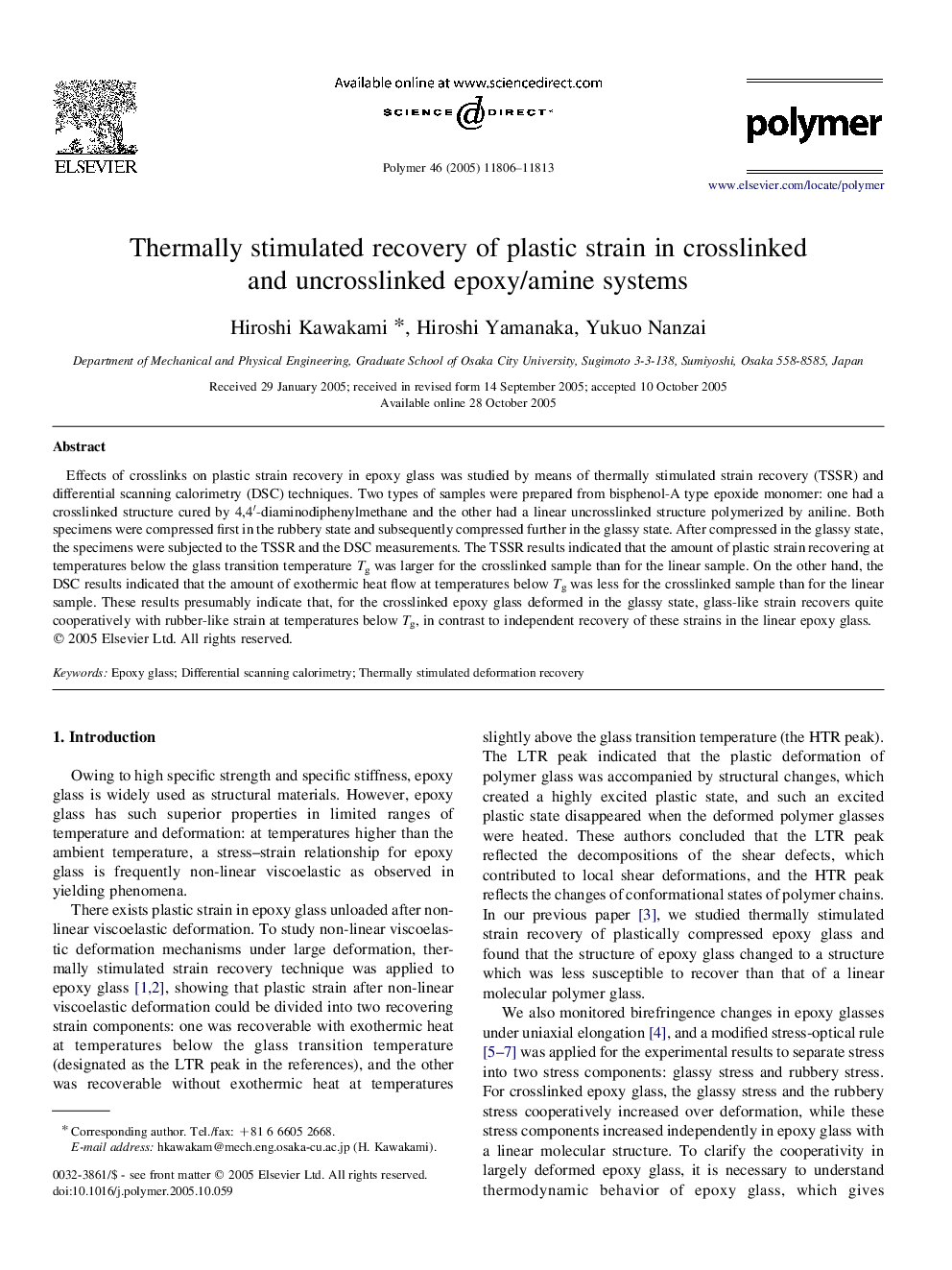| Article ID | Journal | Published Year | Pages | File Type |
|---|---|---|---|---|
| 5187544 | Polymer | 2005 | 8 Pages |
Effects of crosslinks on plastic strain recovery in epoxy glass was studied by means of thermally stimulated strain recovery (TSSR) and differential scanning calorimetry (DSC) techniques. Two types of samples were prepared from bisphenol-A type epoxide monomer: one had a crosslinked structure cured by 4,4â²-diaminodiphenylmethane and the other had a linear uncrosslinked structure polymerized by aniline. Both specimens were compressed first in the rubbery state and subsequently compressed further in the glassy state. After compressed in the glassy state, the specimens were subjected to the TSSR and the DSC measurements. The TSSR results indicated that the amount of plastic strain recovering at temperatures below the glass transition temperature Tg was larger for the crosslinked sample than for the linear sample. On the other hand, the DSC results indicated that the amount of exothermic heat flow at temperatures below Tg was less for the crosslinked sample than for the linear sample. These results presumably indicate that, for the crosslinked epoxy glass deformed in the glassy state, glass-like strain recovers quite cooperatively with rubber-like strain at temperatures below Tg, in contrast to independent recovery of these strains in the linear epoxy glass.
